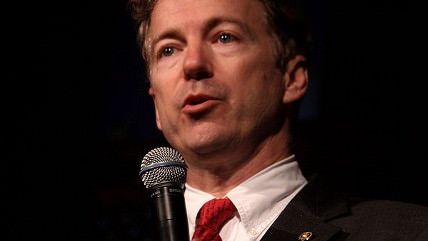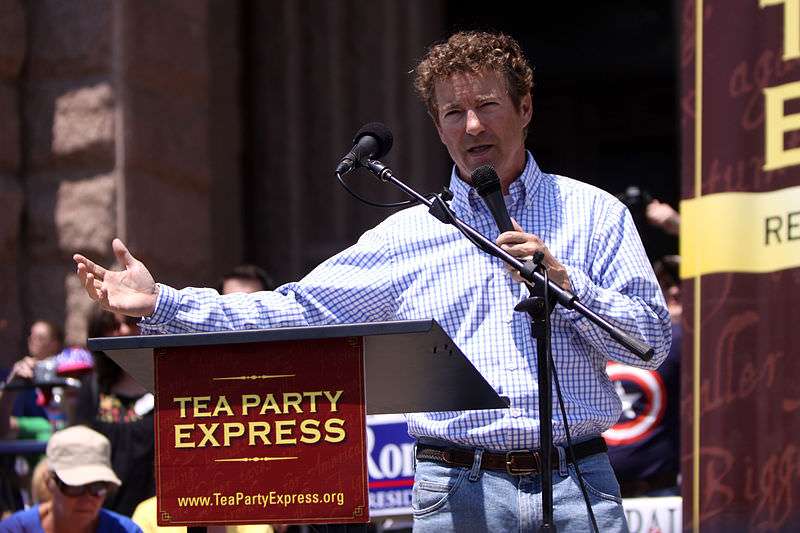Rand Paul Has Work To Do Before He is the Next "Generation-Defining Senator" on US Foreign Policy


The Associated Press have published an article on Kentucky Republican Sen. Rand Paul's foreign policy, which has as one of its introductory sentences the following:
Is Rand Paul the next generation-defining senator on American foreign policy?
Good question, especially considering that Paul is widely expected to run for president in a few years.
Although Paul may be known as a prominent non-interventionist, he must do more to more fully explain his foreign policy before he can be characterized as "the next generation-defining senator on American foreign policy." As it stands Paul's foreign policy includes unclear policy proposals for how to deal with Islamic fundamentalism based on Cold War-style "containment."
Since announcing his intention to run for the Senate back in 2009, Paul has not shied away from advocating for a non-interventionist foreign policy, putting himself at odds with some of his Republican colleagues.
Thankfully for Paul, the Obama administration's policies have given him plenty of opportunities to highlight his own views on foreign policy.
During his almost 13-hour filibuster of John Brennan's nomination to the CIA Paul directed attention to the fact that the Obama administration has used drones to kill American citizens. As the AP noted, two months after the filibuster "Obama revamped his drone policy to set tougher standards for when the U.S. can target and kill al-Qaeda or other terrorists who pose "a continuing, imminent threat" to Americans."
Last July, after the coup in Egypt, Paul argued for ending foreign aid to Egypt. Despite the fact that many Democratic and Republican senators opposed Paul's push to have aid suspended, the Obama administration did announce that some military aid would be suspended earlier this month.
Paul has been one of the strongest critics of intervention in Syria, arguing that it would be unwise to assist Assad's opposition, which contains fighters with links to Al Qaeda.
Paul's positions on Egypt and Syria should not have been surprising given what he said during a speech on foreign policy at The Heritage Foundation last February.
However, it was in this speech that Paul lauded a policy of "containment" while drawing comparisons between communism and radical Islam, without explaining exactly how radical Islam can be contained. The Soviet Union and its allies had distinct geographical boundaries and diplomatic representatives. Al Qaeda and its allies are spread throughout the world and the U.S. does not negotiate with terrorists, making the sort of "containment" advocated by George Kennan very difficult to implement with respect to Islamic terrorism, which Paul accepts is a danger.
I am a fan of Paul's record on foreign policy. But before he can become "the next generation-defining senator on American foreign policy" he needs to further explain how radical Islam can be contained if the U.S. becomes less involved in foreign affairs. Thankfully, the coming months and years will provide ample opportunties for Paul to outline his foreign policy more fully.


Show Comments (27)